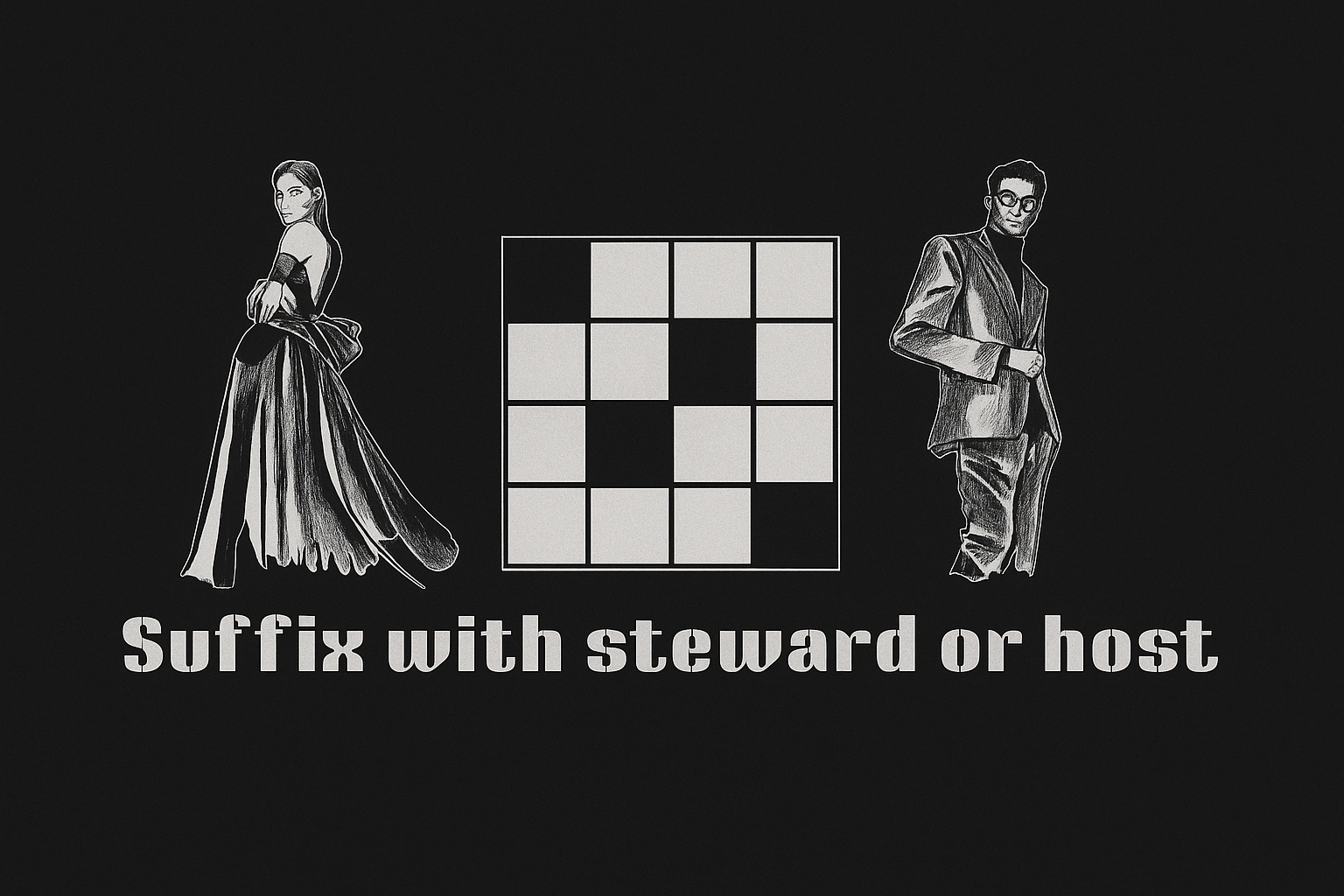sometimes the smallest additions carry the heaviest meaning. The New York Times crossword clue “Suffix with Steward or Host” is one of those gentle linguistic nudges, hinting at endings that are more than just grammatical—they’re cultural, emotional, and deeply human.
The Crossword as a Mirror of Language
Why NYT Crossword Clues Feel Like Time Capsules
The NYT crossword isn’t just a game—it’s a living museum of language. Clues like this one don’t just test memory; they make us reflect on how words evolve and why we choose one ending over another.
The Beauty of a Suffix
A suffix is a whisper at the end of a word, changing its shape, its sound, its soul.
Understanding “Steward” and “Host”
Steward – A Word of Service
Once referring to caretakers of estates, ships, or airplanes, “steward” has always carried a sense of responsibility and grace.
Host – The Keeper of Gatherings
“Host” is warmer, more communal—a person who welcomes others into their space.
The Suffix in Question – A Nod to the Feminine
From -ess to -ette and Beyond
In English, historically, suffixes like -ess were used to denote female roles: stewardess, hostess.
The Cultural Shift
While once common, these gendered suffixes have faded in many contexts, replaced by gender-neutral forms. Yet, they linger in memory and in certain corners of speech, like a faded photograph.
Why This Clue Tugs at the Heart
A Bit of Nostalgia
“Stewardess” evokes the glamour of early air travel; “hostess” recalls dinner parties with fine china and careful arrangements.
A Hint of Change
Solving this clue is like finding an old train ticket—you remember the journey, but you know the routes have changed.
Language as a Reflection of Society
When Suffixes Tell Stories of Gender
Each ending carries a history of who was expected to hold a role.
Why We Move Toward Neutrality
Language evolves toward equality, shedding the need to mark gender unless it’s relevant.
The Crossword Solver’s Approach
Step One – Spot the Pattern
“Suffix” in the clue signals that the answer is a short addition, like ess.
Step Two – Test the Words
Steward + ess = stewardess; Host + ess = hostess. The match is perfect.
Poetic Weight in Small Things
The Soft Power of -ess
Three letters, and yet they carry decades of cultural association.
The Way Endings Feel
Some suffixes are sharp, others are soft—-ess feels like a curtain falling gently at the end of a performance.
When Words Dress for the Occasion
Formal Titles
A hostess is different from just someone hosting—it implies ceremony.
The End of the Era
Today’s world often drops the suffix, but the crossword grid preserves it like pressed flowers in a book.
The Global Echo
Romance Languages and Gendered Endings
French, Spanish, and Italian still use endings to signal gender—another reminder of how language shapes perception.
The English Middle Ground
English is slowly letting go, but not without keeping some words for tradition’s sake.
Why This Clue Will Keep Returning
As long as the crossword exists, clues like this will pop up—not because we still say “stewardess” every day, but because language loves its relics.
Conclusion – The Ending That Lingers
The suffix in Steward or Host isn’t just about gender—it’s about memory, formality, and the beauty of endings that once defined roles. In solving the clue, we don’t just get the answer ess—we get a little piece of history, tucked in the corner of the crossword.
FAQs
1. What is the answer to “Suffix with Steward or Host” in the NYT crossword?
Typically, it’s ess (stewardess, hostess).
2. Why do crosswords use such suffix clues?
Because they are short, versatile, and connect with language history.
3. Are gendered suffixes still used in English?
Less frequently, but they remain in certain traditional contexts.
4. What’s the cultural significance of -ess?
It reflects older linguistic habits of marking gender, now largely replaced by neutral forms.
5. How can I solve suffix clues faster?
Look for short endings, test them on the words in the clue, and check if they fit both grammar and history.
